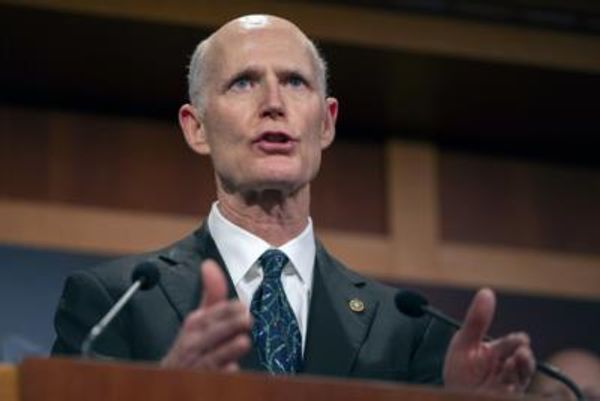
The Indian government has responded to allegations by the US Department of Justice that an Indian agent attempted to assassinate a Sikh separatist on US soil, stating that such a crime would be “contrary to government policy”.
The DoJ indictment, which was made public on Wednesday, included damning details regarding the alleged attempted assassination of Gurpatwant Singh Pannun, a US citizen, by an Indian intelligence officer referred to only as CC-1.
According to the allegation, CC-1 “directed the assassination plot from India”.
Pannun is a vocal critic of the Indian government and a known supporter of the Khalistan movement, which fights for an independent state for Sikhs in Punjab and is outlawed in India. He also runs the US-based organisation Sikhs for Justice.
At a briefing on Thursday, Arindam Bagchi, the spokesperson for India’s ministry of external affairs, described the case as a “matter of concern” and said the accusations that had been made by the DoJ were “contrary to government policy”.
Echoing a previous statement given after the Financial Times first revealed details of the alleged attempted killing of Pannun, Bagchi did not explicitly deny the allegations.
He said: “The nexus between organised crime, trafficking, gunrunning, and extremists at an international level is a serious issue for the law enforcement agencies and organisations to consider, and it is for that reason that a high-level inquiry committee has been constituted and we will be guided by its results.”
According to the indictment, the Indian intelligence officer worked directly with an Indian national, Nikhil Gupta, to try to arrange a murder for hire on Pannun in New York in June. However, the alleged plan was foiled in a sting operation after the “hitman” that Gupta agreed to pay $100,000 (£79,000) to carry out the assassination was in fact an undercover informant for the US enforcement agencies.
According to court documents, Gupta was involved in narcotics and weapons trafficking and had been assured by the Indian agent known as CC-1 that an ongoing criminal case against him in the Indian state of Gujarat would be cleared.
Gupta had fled to the Czech Republic but was apprehended by the authorities and deported to the US, where he will face murder-for-hire charges.
The indictment also included alleged evidence relating to the killing of another Khalistani activist, Hardeep Singh Nijjar, who was gunned down outside a gurdwara in Canada, also in June.
In September, the Canadian prime minister, Justin Trudeau, took the unusual step of publicly stating there were “credible allegations” linking the Indian government to the assassination of Nijjar. The allegations were denied by India, which called the claim “absurd” and politically motivated.
According to the DoJ indictment, Gupta had told the US enforcement informant that Nijjar was “also the target” and that after his murder there was “no need to wait” to carry out the assassination of Pannun.
Moninder Singh, a spokesperson for the British Columbia Gurdwara Council in Canada, said the allegations in the indictment “clearly indicate that Indian agencies are aggressively pursuing a policy of coordinated assassinations against Sikh activists around the world because they are advocating for Khalistan”.
Singh was temporarily forced into hiding last July after police handed him a “duty to warn” letter over an unspecified threat to his life. He said Wednesday’s indictment highlighted that the plot against Pannun “was only one of a number of targets” against prominent Sikhs.
“While the arrest and prosecution of this one individual is significant, it is imperative that the US and its allies take meaningful steps to hold the Indian state accountable for its violations,” he added. “These were not just the isolated actions of a few individuals, but an official state policy being executed by its agents.”







